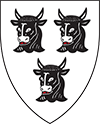Fellows
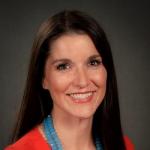 |
Kassie TuckerTsai Center for Innovative Thinking at YaleKassie is the Managing Director of the Tsai Center for Innovative Thinking at Yale. At Tsai CITY, she focuses on engaging students from across Yale’s campus to explore innovative ways to solve real world problems. Email Kassie Tucker |
 |
Tom TylerLaw SchoolTom R. Tyler is the Macklin Fleming Professor of Law and Professor of Psychology at Yale Law School. He is also a professor (by courtesy) at the Yale School of Management. He joined the Yale Law faculty in January 2012 as a professor of law and psychology. He was previously a University Professor at New York University, where he taught in both the psychology department and the law school. Prior to joining NYU in 1997, he taught at the University of California, Berkeley, and at Northwestern University. Professor Tyler’s research explores the role of justice in shaping people’s relationships with groups, organizations, communities, and societies. In particular, he examines the role of judgments about the justice or injustice of group procedures in shaping legitimacy, compliance, and cooperation. He is the author of several books, includingWhy People Cooperate (2011); Legitimacy and Criminal Justice (2007); Why People Obey the Law (2006); Trust in the Law (2002); and Cooperation in Groups (2000). He was awarded the Harry Kalven prize for “paradigm shifting scholarship in the study of law and society” by the Law and Society Association in 2000, and in 2012, was honored by the International Society for Justice Research with its Lifetime Achievement Award for innovative research on social justice. He holds a B.A. in psychology from Columbia and an M.A. and Ph.D. in social psychology from the University of California at Los Angeles. |
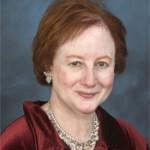 |
Noël ValisSpanish & PortugueseNoël Valis has written on the literature, culture, and history of modern Spain; the Spanish Civil War; religion and literature; Federico García Lorca; and the study of celebrity and cultural icons. Her work in women’s and gender studies was recognized with the Victoria Urbano Academic Achievement Prize. A Corresponding Member of the Royal Spanish Academy and past member of the NEH’s National Council on the Humanities, she is also the recipient of Fulbright, Guggenheim, and NEH/National Endowment for the Humanities Fellowships. She served as President of the Asociación Internacional de Galdosistas/International Association of Galdós Scholars in 2021-23. Email Noël Valis |
 |
Libby Van CleveOral History of American Music ArchiveLibby Van Cleve is a scholar and performer with a specialty in contemporary American music. As Director of Yale’s Oral History of American Music Archive, she has conducted numerous interviews with major figures in American music. She is the author of the award-winning book and CD publication Composers’ Voices from Ives to Ellington, Yale University Press as well as various articles, program notes, and liner notes, which are often generated by material from her interviews. Complementing her work at OHAM, Ms. Van Cleve is recognized as one of the foremost interpreters of contemporary and chamber music for the oboe. She has recorded dozens of CDs and is author of Oboe Unbound: Contemporary Techniques, Rowman and Littlefield Publishers. When not playing the oboe or interviewing composers, Libby enjoys gardening, hiking, taking zumba classes, and the challenge of raising a teenage daughter. She is actively involved at Yale’s St. Thomas More Chapel as musician and parishioner. Email Libby Van Cleve |
 |
Fafa VanhaYale Sustainable FoodFafa manages educational programming and strategic communications for the YSFP. She graduated from Yale College with a B.S. in Ecology & Evolutionary Biology and a certificate in Energy Studies in 2022. Before joining the YSFP, Fafa served as a fellow at the University of Alaska Fairbanks Center for One Health Research working with community members, public health researchers, and practicing veterinarians, where she was exposed to the relations between Food Security and Food Sovereignty. At the YSFP, Fafa coordinates the Camp Yale Harvest Program, directs knead 2 know events, the Chewing the Fat speaker series and podcast, and works closely with student leaders to develop meaningful programming. Her interests lie in ecological approaches to food sovereignty. Email Fafa Vanha |
 |
Jack VeesSchool of Music RetiredJack Vees is renowned as a performer and composer, at locations as varied as CBGB’s downtown New York scene and the Berlin Biennale Festival. His book The Book on Bass Harmonics has become the definitive technical text for bassists today. He has developed a distinctive musical style that combines rigorous formal thinking with the energy of rock and roll. |
 |
Eric Velazquez, MDCardiovascular MedicineEric J. Velazquez, MD, the Robert W. Berliner Professor of Medicine, serves as the chief for Cardiovascular Medicine for Yale School of Medicine, chief of Cardiovascular Medicine for Yale New Haven Hospital, and the Physician-in-Chief of the Heart and Vascular Center for Yale New Haven Health. Through these roles he coordinates a high-volume enterprise and an outstanding group of clinician-investigators, physician scientists, and staff who make important contributions across patient care, research and educational domains. He leads more than 150 faculty who focus on every area of cardiovascular medicine tapping into a broad array of tools, technologies, and expertise. Additionally, he is the Deputy Director at the Yale Center for Clinical Investigation. Velazquez chose a career in cardiovascular medicine twenty-five years ago. Through key leadership positions, he has pursued clinical, research, and methodologic interests and facilitated multicenter clinical research programs and quality initiatives with substantive focus and impact on vulnerable and underserved populations at high medical risk and has honed the administrative skills required to implement challenging programs in diverse settings globally. Today, much of his research and clinical work focuses on the intersection between heart failure and coronary artery disease. As a clinical investigator, he has authored over 300 peer-reviewed publications and made major contributions in the design, development, and implementation of landmark clinical trials that have altered international guidelines and the treatment of patients with chronic heart failure. These programs have established the evidence for best practice standards, modified treatment guidelines, and have had a direct impact on the U.S. public health. A dedicated mentor, he has proudly guided numerous physician-scientists and allied health care professionals in building unique careers. In 2014, Velazquez was inducted into the American Society of Clinical Investigation; in 2019, he was inducted into the Association of University Cardiologists. Velazquez, a first-generation American whose parents emigrated from Cuba, was born in New York City where he attended Regis High School. He graduated from Williams College with a bachelor’s degree with Honors in Psychology and then attended the Albert Einstein College of Medicine. Velazquez did his internal medicine and cardiology training at Duke University including fellowships in clinical research and echocardiography and joined the Duke faculty as the first Greenfield Scholar of Cardiology in 2001 and was named a Professor of Medicine with Tenure in 2012. Prior to joining Yale in 2018, Velazquez held appointments at the Duke University School of Medicine, Duke Clinical Research Institute and Duke Global Health Institute. Dr. Velazquez currently lives in New Haven with his spouse Maureen S. Velazquez, MBA. He is the proud father of Luc Tomas who is a rising 2nd year law student and Sofia who will begin graduate studies in Immunobiology this Fall at Yale. Email Eric Velazquez, MD |
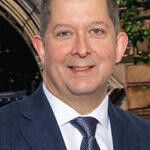 |
Paul VermealYale HospitalityEmail Paul Vermeal |
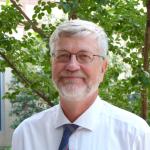 |
Sten VermundPublic Health Sten H. Vermund, MD, PhD, the Anna M.R. Lauder Professor of Public Health, and Professor of Pediatrics at the Yale School of Medicine. Dr. Vermund is a pediatrician and infectious disease epidemiologist focused on diseases of low and middle income countries, and on health disparities in the U.S. His work on HIV-HPV interactions among women in a Bronx methadone program motivated a change in the 1993 CDC AIDS case surveillance definition and inspired cervical cancer screening programs launched within global HIV/AIDS programs. His research has focused on health care access, adolescent medicine, prevention of mother-to-child HIV transmission, and reproductive health. Following his human biology studies at Stanford University, Dr. Vermund received his M.D. from the Albert Einstein College of Medicine and his pediatrics training at Columbia’s Babies Hospital. He then completing a master’s degree at the London School of Hygiene and Tropical Medicine, a diploma from the Royal Institute of Public Health and Hygiene, a Mellon Foundation fellowship in clinical epidemiology at Columbia-Presbyterian Medical Center, and a Ph.D. in epidemiology from Columbia University. Dr. Vermund is a member of the National Academy of Medicine and a Fellow of the AAAS. Author of 560 papers and chapters, nearly all with his students and colleagues, he ranks among the top US academics for NIH grant resources over his career. He has founded two non-governmental organizations: Centre for Infectious Disease Research in Zambia (CIDRZ) and Friends in Global Health in Mozambique and Nigeria. Dr. Vermund has been recognized with the NIAID/NIH/PHS/DHHS Meritorious Service Award, the DHHS Public Health Service Superior Service Award, the Richardson Award for Perinatal and Pediatric Health Care Research, the Velji Faculty Award for Teaching Excellence in Global Health, the Rosenfield Alumni Award for Excellence in Public Health from Columbia’s Mailman School of Public Health, and the Martin Luther King, Jr. Award from Vanderbilt University School of Medicine. He serves on several editorial boards including the JAIDS, AIDS, JIAS, PLOS ONE, and Transactions of the RSTMH and is on multiple international and U.S. advisory committees. Prior to joining Yale in 2017, Dr. Vermund was the Amos Christie Chair in Global Health and Professor of Pediatrics at Vanderbilt University. He founded and directed the Vanderbilt Institute for Global Health and served as Vanderbilt’s Assistant Vice Chancellor for Global Health and Vice President for Global Health for the Vanderbilt University Medical Center. Email Sten Vermund |
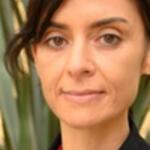 |
Kalindi VoraEthnicity, Race & Migration;Women's Gender & Sexuality StudiesKalindi Vora is Professor of Ethnicity, Race, and Migration, and Women’s Gender and Sexuality Studies at Yale University. Her first book, Life Support: Biocapital and the New History of Outsourced Labor (Rachel Carson Book Prize 2018), takes up questions of technology, colonialism and raced and gendered labor under globalization. Her second book is Surrogate Humanity: Race Robotics and the Politics of Technological Futures (Duke 2019), co-authored with Neda Atanasoski, a project on the racial and gendered politics of robotics and artificial intelligence. With the Precarity Lab, she is co-author of Technoprecarious (2020), which tracks the role of digital technologies in multiplying precarity. A book of her collected work on transnational gestational surrogacy in India is forthcoming under the title, Reimagining Reproduction: Surrogacy, Labour and Technologies of Human Reproduction. She has also edited three anthology special issues, “Whiteness and Technoscience,” in Catalyst: Feminist, Technoscience, Theory Critical Perspectives (2018) and “Postsocialist Politics and the Ends of Revolution” (2018) in Social Identities with Neda Atanasoski; and with Fouzieyha Towghi, “Bodies, Markets and the Experimental in South Asia,” in Ethnos: Journal of Anthropology (2012) Her past research has included STS and ethnographic study of information and communications technology, assisted reproductive technology, and robotics and machine learning, about which she has published in journals such as: Ethnos: Journal of Anthropology, Current Anthropology, Social Identities, The South Atlantic Quarterly, Postmodern Culture, and Catalyst: Feminism, Theory, Technoscience. She currently sits on the editorial board of Catalyst: Feminism, Theory, Technoscience and The Anthropology of Work. Professor Vora is currently involved in several research projects. She continues writing and publishing on artificial intelligence and automation through the lens of STS and critical race and gender theories. She is also beginning a book project, supported by a National Science Foundation Science and Technology Studies award (2022-2024) tentatively titled, Autoimmune: Chronic Conditions and Care in a Time of Uncertain Medicine. It places contemporary narratives of illness by patients facing racism and sexism in their daily lives within an analysis of the history of the concept of autoimmunity and contemporary practices of healthcare self-monitoring to understand the potential for patient-physician co-production of medical knowledge. “Asking Different Questions” is a pedagogical project funded by the National Science Foundation’s “Innovations in Graduate Education” award program (2018-2021). Through modules, workshops, and Ph.D. seminars, this curriculum trains advanced STEM researchers to incorporate social (justice) impacts into their research design and practice. She is also working on the collaboratively authored book, The Science We are For: A Feminist Pocket Guide (under review), with the Star Feminist Collaboratory (K. Vora, L. Irani, C. Hanssmann, S. Varma, S. Zarate, L. Quintanilla). Intended for researchers and readers invested in technoscience of all types, this how-to guide breaks down basic concepts in gender/sexuality studies, ethnic studies, and science and technology studies for pragmatic and applied uses in a variety of learning and research contexts. Prior to Yale, she was the Director of the Feminist Research Institute and Professor of Gender, Sexuality and Women’s Studies at The University of California Davis and Associate Professor of Ethnic Studies at UC San Diego. Her research has been supported by several National Science Foundation grants, Hellman fellowships, as well as University of California Humanities Research Institute fellowships. She was a University of California President’s Postdoctoral Fellow in the Anthropology Department at UC Berkeley, and has been a visiting fellow at the Digital Cultures Research Lab at Leuphana University in Luneburg, Germany and at GEXcel at Linköping University in Sweden. Email Kalindi Vora |
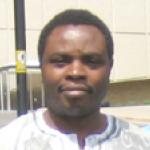 |
John Wa'NjoguAfrican StudiesJohn Wa’Njogu’s interests include foreign language curriculum development, teaching methodology, material development, and assessment. Other areas of interest are language planning, language and democracy, ethnicity, Kiswahili and other African literatures and literary criticism. Email John Wa'Njogu |
 |
John WargoSchool of Forestry and Environmental StudiesJohn Wargo is a Professor of Environmental Health and Politics at the Yale School of the Environment and Chair of the Yale College Environmental Studies Major and Program. His research explores threats to human health posed by environmental hazards, including exposures to pesticides, vehicle emissions, toxins in foods, plastics, flame-retardants, metals, and chemicals released outdoors and indoors. His current research examines environmental and health challenges associated with the global food system. He has advised many government agencies including the World Health Organization, the Food and Agriculture Organization, the US EPA, CDC, FDA, USDA to assist in the development in risk assessments and regulatory programs. He teaches courses in Yale College, and YSE, and holds a visiting faculty appointment at the University of Basel in Switzerland. From 2016-2020 he was a Resident Fellow in Trumbull College. Email John Wargo |
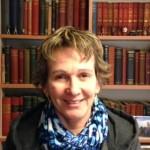 |
Marta WellsEcology & Evolutionary BiologyMarta Wells, originally from Colombia, is a Senior Lecturer in the Department of Ecology & Evolutionary Biology at Yale, and a Research Scientist in the Department of Ecology and Evolutionary Biology at The University of Connecticut. She came to Yale in 1997, and has been teaching and advising students since. Among the courses she has taught are: Biology of Terrestrial Arthropods, Laboratory for Biology of Terrestrial Arthropods, Animal Behavior, Introduction to Biology, Diversity of Life, Laboratory for Evolutionary Biology, Laboratory for Principles of Ecology, Evolution and Behavior, Laboratory on Evolution, Functional Traits, and The Tree of Life. In addition to teaching, Marta is an Academic Advisor for undergraduate students in the Ecology and Evolutionary Biology Department, Mellon-Bouchet Fellows, and a sophomore advisor. In addition, she advises students doing their research and tutorial courses and does all the corresponding administrative work, as wells as organizing and running the E&EB Undergraduate Senior Symposium every year. Marta’s research interests are with insects, using green lacewings as model systems to investigate topics in Evolution, species origins, behavior, acoustic signals, and phylogenetic systematics. Email Marta Wells |
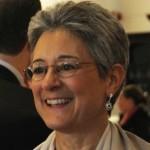 |
Tamar WellsMusicianTamar Wells is a founding member of the Grammy-nominated Borealis Wind Quintet and the principal oboist of the Greater Bridgeport Symphony. She is also well acquainted with the underside of her sea kayak as she and her husband, Rich, work toward their BCU level 3 kayak certification, a piece of which requires their skill of rolling to be at least rudimentary. They enjoy ballroom dancing, and taking lessons in “how not to be embarrassed on the dance floor.” In the interest of communication with new Brazilian in-laws, Tamar is attempting to learn Portuguese, which she finds delightful! They divide their time between Northwest CT and the coast of RI. Email Tamar Wells |
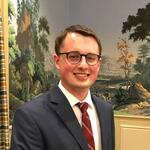 |
Eli WestermanSummer SessionEli may be relatively new as a Trumbull Fellow, but he’s a seasoned member of the Yale community. He earned his B.S in Chemical Engineering and Classical Civilization from Yale in 2018 and was proud to serve as a Trumbull FroCo. As the Communications Manager at Yale Summer Session, he runs campus outreach, manages the advertising campaigns, and develops collateral materials. An avid hiker, he has planted a foot atop every 5,000-foot peak in New Hampshire and is also certified as a Wilderness First Responder. He also enjoys learning about New Haven’s history, exploring New England, and cooking. Email Eli Westerman |
 |
R. John WilliamsEnglishJohn William’s research and teaching focuses on the intersections between international histories of technological innovation and the perceived difference of racial and cultural otherness. His current book project, “Technology and the Meeting of East and West,” examines the role of technological discourse in representations of Asian/American aesthetics in late-nineteenth and twentieth century film and literature. He argues that insofar as Anglo American modernism based its aesthetic innovations on a range of new technologies, it did so by throwing into question the relation of these technologies to the cultural traditions from which it seemed to break. It is from this vantage that Asia signaled both the perilous transnationalization of Western technologies as well as an especially therapeutic and non-alienated relation between technê and the environment. Email R. John Williams |
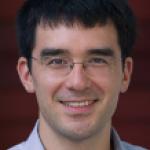 |
Brendan WooOffice of the ProvostBrendan Woo serves as senior project manager for strategic initiatives in the Office of the Provost, where he supports processes to align fundraising initiatives with Yale’s academic priorities and manages discrete projects on behalf of the provost’s office. In this role, he partners closely with vice provosts as well as colleagues in the Office of Development and the Office of the General Counsel. Before joining the Office of the Provost in 2024, Brendan was director of learning operations in the Executive Education department at the Yale School of Management, where he led the development and implementation of practices focused on business process excellence, data excellence, and university citizenship. In this capacity, he directed the business and administrative operations of the largest non-degree education department at Yale, serving over 7,000 learners per year. Prior to his time at Yale SOM, Brendan served on the staff of the Yale-China Association, a nonprofit organization dedicated to inspiring Chinese and Americans to learn and serve together. There, he worked in a variety of teaching, recruiting, coaching, development, and strategic roles in New Haven as well as Hong Kong and Anhui Province, China. Brendan holds a B.A. in linguistics from Yale College and an M.A. in organizational psychology from Teachers College, Columbia University. Email Brendan Woo |
 |
Jonathan WyrtzenSociologyJonathan Wyrtzen is a comparative-historical sociologist with teaching and research interests in North African society and politics. He works on the areas of state formation and non-state forms of political organization; colonialism and empire; ethnicity and nationalism; urban and rural contentious politics; and Islamic social movements. He has recently completed a book manuscript titled, Making Morocco: Colonial Intervention and the Politics of Identity, that examines the relationships among European imperial expansion, colonial policies of modernization and state formation, and the rise of Arabo-Islamic nationalism in North Africa in the mid-20th century. This study also explores the central roles of three marginal groups – Imazighen (Berbers), Jews, and women - in defining Moroccan identity during the mobilization of anti-colonial nationalism. He is beginning a comparative project examing the transformation of political space in the North Africa and the Middle East in the 1920s, looking at movements defending local autonomy in Morocco, Libya, Syria, Anatolia, and the Arabian Peninsula. Email Jonathan Wyrtzen |
 |
Cecillia XieComputer ScienceEmail Cecillia Xie |
 |
Susan Yankee-DillnerVoiceSusan Yankee-Dillner performed the Mezzo-soprano repertoire across the country, including two solo appearances at Carnegie Hall and soloist in the Mozart in Mass Series at Alice Tully Hall, Lincoln Center and the New York City Opera National Company. Ms. Yankee is a graduate of the Hartt School of Music and the Yale School of Music. Ms. Yankee is a (3) three times National Endowment of the Arts grant recipient for her creation of interactive educational operas for children based on popular fairytales to the music of classical opera composers. Each opera has a civic-minded topic; youth smoking prevention, recycling, and healthy eating and exercise. She is the past Artistic Director of Shreveport Opera’s Young Artist Program. Ms. Yankee has been on the faculty of many young artist programs and makes it her mission to guide young performers in a successful career in the arts. Email Susan Yankee-Dillner |

